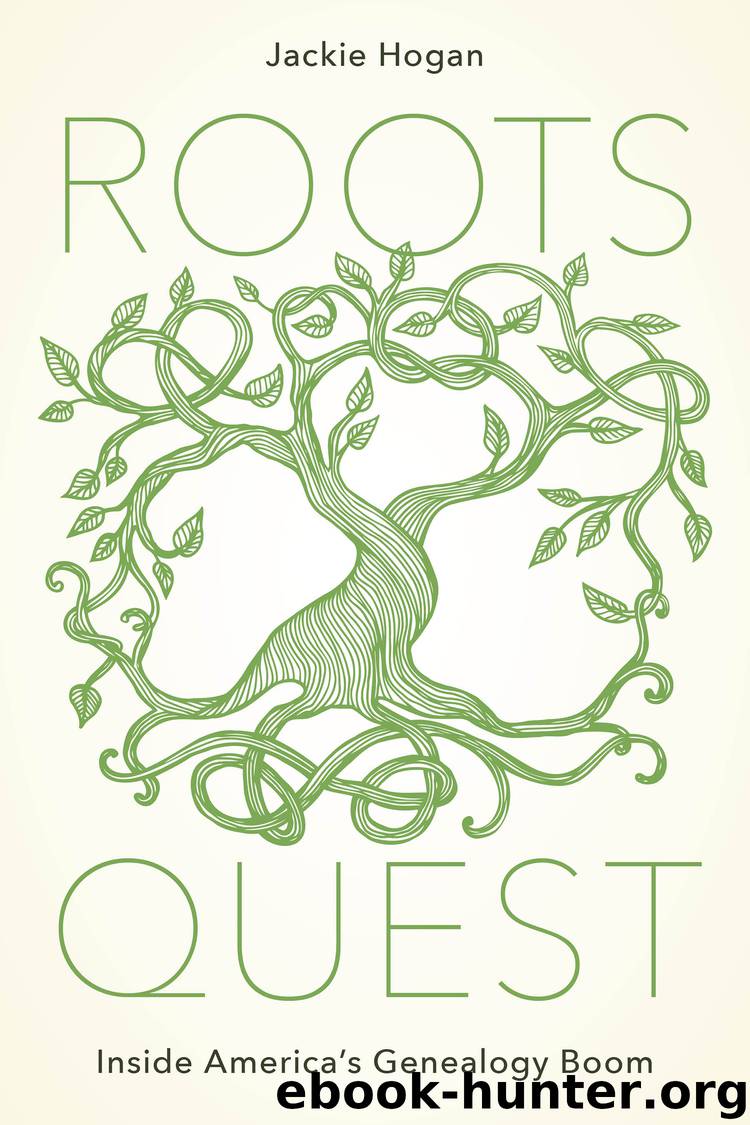Roots Quest by Jackie Hogan

Author:Jackie Hogan [Hogan, Jackie]
Language: eng
Format: epub
Publisher: Rowman & Littlefield Publishers
Published: 2018-10-16T16:00:00+00:00
And the Moral of the Story Is . . .
In some ways, the televised roots quest can be seen as a twenty-first-century morality tale. The protagonists embark on their journeys, and encounter characters and events that exemplify good and evil, justice and injustice, strength and weakness. And from these encounters, the protagonists take moral lessons—lessons about what is most important in life; lessons about how to live their lives; lessons about what it means to be a good parent, child, sibling, or spouse, a good citizen, a good American. The general lessons that emerge most commonly from the shows include the importance of family and the bonds of love and community; the importance of peace, empathy, acceptance, and the humane treatment of others, but also of resistance and even violence in the struggle for justice; and the importance of understanding history and the sacrifices of your ancestors in order to make the most of your life on Earth. But American televised roots quests also convey the importance of certain national values—specifically, multiculturalism, the American Dream, religious faith, and progress.
Multiculturalism
Living in a settler society, most Americans today come from immigrant stock. It is hardly surprising, then, that American roots television celebrates the multicultural diversity of the nation. While the majority of guests featured on American roots series are white, producers make clear attempts to include a range of racial, religious, and national backgrounds in their storylines.15 A consistent theme across the series is that as a nation, our diversity makes us stronger. As political commentator Linda Chavez put it when exploring her family history on PBS,
I’ve always thought that the story of America was the story of peoples coming here from all different parts of the world—some voluntarily, some involuntarily—and that what made this country such a great country is that we did have this mixing of peoples. . . . We bring into our culture bits and pieces of so many different strains of other traditions and cultures, and that’s made us stronger.
Featured guests from all of the roots shows analyzed here express similarly positive views of America’s multicultural social fabric. Indeed, almost without exception guests welcome the discovery of unexpected ethnoracial ancestries in their family tree. “Cool!” German American Ty says when he uncovers a Jewish ancestor. “Awesome!” actress Michelle Rodriguez exclaims when DNA results reveal that she is “21 percent African.” At the same time, guests express disappointment at not being sufficiently multicultural. “What?! I’m appalled,” Rodriguez says when she learns that in addition to her significant African heritage, she is “72 percent European.” “I’m so, like, not impressed. . . . I wanted to be Native American.” Likewise, when actor Robert Downey Jr. is told that his DNA results identify him as “100 percent white,” he says, “I have to admit I’m a little bit disappointed, because I thought I had some African American influence in my blood.”
At the start of the twentieth century, Americans often used genealogy to document their racial purity, to set themselves apart
Download
This site does not store any files on its server. We only index and link to content provided by other sites. Please contact the content providers to delete copyright contents if any and email us, we'll remove relevant links or contents immediately.
Twilight of the Idols With the Antichrist and Ecce Homo by Friedrich Nietzsche(17719)
CHERUB: The Recruit by Robert Muchamore(1829)
CHERUB: The Fall by Robert Muchamore(1713)
CHERUB: Man vs Beast by Robert Muchamore(1612)
I Capture the Castle by Dodie Smith(1575)
The Edge of the Abyss (Sequel to The Abyss Surrounds Us)(1470)
Black Genesis by Robert Bauval(1319)
A Brief History of Everyone Who Ever Lived by Adam Rutherford(1250)
all by Unknown Author(1243)
Where Do I Start? by Chase Taylor Hackett(1062)
2016 Baby Names Almanac(979)
Painfully Rich by John Pearson(958)
Genetics by Adam Rutherford(922)
How to Argue With a Racist by Adam Rutherford(882)
2011 Baby Names Almanac(844)
Black Hawk Down by Mark Bowden(829)
It's All Relative by A. J. Jacobs(799)
My European Family by Karin Bojs(787)
Spook Street (Slough House) by Mick Herron(784)
